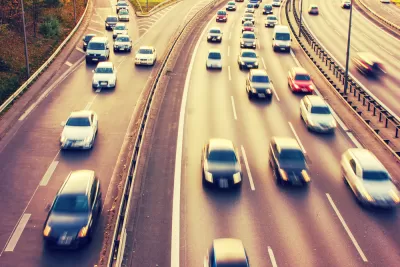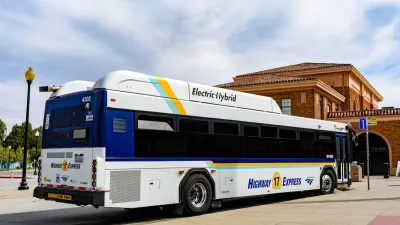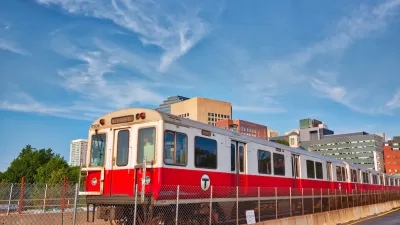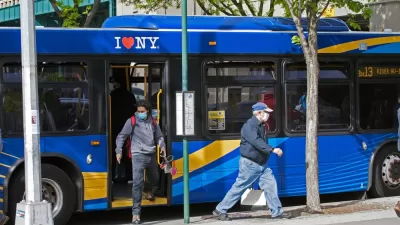The average cost of commuting in the United States rose by 35 percent since last year, according to a new report.

Writing in Axios, Jennifer A. Kingson reports on the rising cost of the average American commute, which is up by $757, or 35 percent, from last year. “The sheer expense of getting to work is not just hurting our bank accounts — it's contributing to wrangling between workers and employers over returning to the office,” Kingson writes.
“It's also leading to debate over whether companies should pick up the tab.” A new Philadelphia law will, if passed, require companies with more than 50 employees to provide commuter benefits.
Kingson notes that the cost of gas is, naturally, one of the main drivers of more expensive commutes. “U.S. commuters will spend an average of $657 on gas this year — up 58% from last year, according to a calculation by a website called Overheard on Conference Calls.” Nationwide, New York City commuters face the highest costs, at $4,040—up 47 percent from last year. Two other New York cities, Rochester and Albany, have the next most expensive commutes, followed by Jacksonville and Orlando.
The silver lining: this could be good for transit. While ridership is still making a sluggish return, more agencies are looking at ways to reduce fares and improve service, while city leaders may be more amenable to investing in transit projects.
FULL STORY: Your commute is hundreds of dollars more expensive this year

Planetizen Federal Action Tracker
A weekly monitor of how Trump’s orders and actions are impacting planners and planning in America.

Maui's Vacation Rental Debate Turns Ugly
Verbal attacks, misinformation campaigns and fistfights plague a high-stakes debate to convert thousands of vacation rentals into long-term housing.

San Francisco Suspends Traffic Calming Amidst Record Deaths
Citing “a challenging fiscal landscape,” the city will cease the program on the heels of 42 traffic deaths, including 24 pedestrians.

Defunct Pittsburgh Power Plant to Become Residential Tower
A decommissioned steam heat plant will be redeveloped into almost 100 affordable housing units.

Trump Prompts Restructuring of Transportation Research Board in “Unprecedented Overreach”
The TRB has eliminated more than half of its committees including those focused on climate, equity, and cities.

Amtrak Rolls Out New Orleans to Alabama “Mardi Gras” Train
The new service will operate morning and evening departures between Mobile and New Orleans.
Urban Design for Planners 1: Software Tools
This six-course series explores essential urban design concepts using open source software and equips planners with the tools they need to participate fully in the urban design process.
Planning for Universal Design
Learn the tools for implementing Universal Design in planning regulations.
Heyer Gruel & Associates PA
JM Goldson LLC
Custer County Colorado
City of Camden Redevelopment Agency
City of Astoria
Transportation Research & Education Center (TREC) at Portland State University
Jefferson Parish Government
Camden Redevelopment Agency
City of Claremont





























